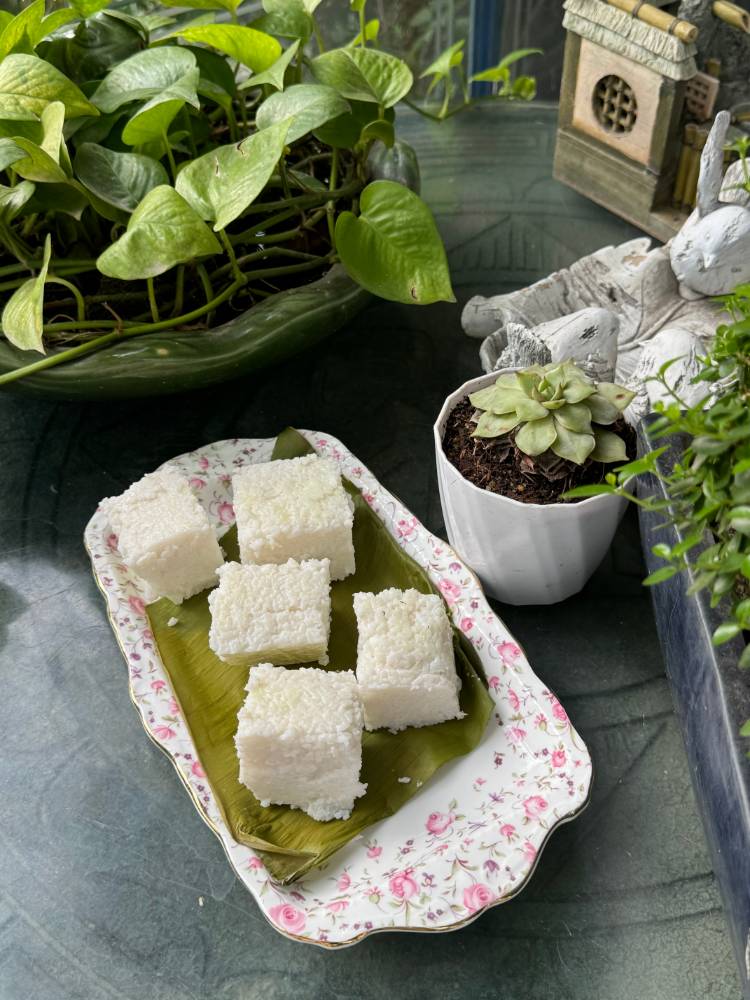A traditional Sri Lankan rice cake cooked in creamy coconut milk, often eaten on auspicious occasions and first mornings of the month.
Kiribath (Milk Rice)
Ingredients
- 2 cups glutinous or jasmine rice rinsed
- 2-3 cups water adjust according to rice variety
- 1 cup thick coconut milk
- ½ tsp salt or to taste
- 2 ″ pandan leaf optional
- 1-2 green cardamom pods optional
Instructions
- Rinse the rice under running water until the water runs clear. Drain and set aside.
- In a pot large enough to allow expansion, combine the rice, water, pandan leaf, and cardamom (if using). Bring to a boil over medium heat.
- Once boiling, reduce the heat to medium–low and cook, uncovered, until the water is nearly fully absorbed and the rice grains are soft and slightly mushy (about 15-20 minutes). Stir occasionally to prevent sticking and lower the heat as the water evaporates.
- Pour in the coconut milk and sprinkle in the salt. Stir gently to blend, then cook over low heat for another 10 minutes, stirring occasionally, until the mixture takes on a creamy, porridge-like consistency.
- Remove from heat and let rest, covered, for 2-3 minutes. Line a square pan or baking dish with banana leaf or cling film, then transfer the rice mixture and press down firmly and evenly with the back of a spoon. Smooth the surface with a flat spatula.
- Allow to cool completely so the kiribath sets into a cake. Once firm, cut into diamond or square shapes and serve with your favorite curry.
Notes
Kiribath’s signature creamy texture comes from cooking the rice until it breaks down slightly before adding coconut milk. Watching the pot closely and stirring as needed prevents the rice from scorching. Optional aromatics like pandan leaf or cardamom lend a subtle fragrance but can be omitted if unavailable. Pressing and cooling the mixture in a lined dish allows it to set firmly for neat slicing. Traditionally served cold, kiribath pairs beautifully with spicy sambols or vegetable curries. Kiribath is traditionally prepared for special occasions – such as the Sinhalese New Year (Avurudu), weddings, birthdays and even the first meal of a new year or venture – symbolizing prosperity, blessings and good fortune.

